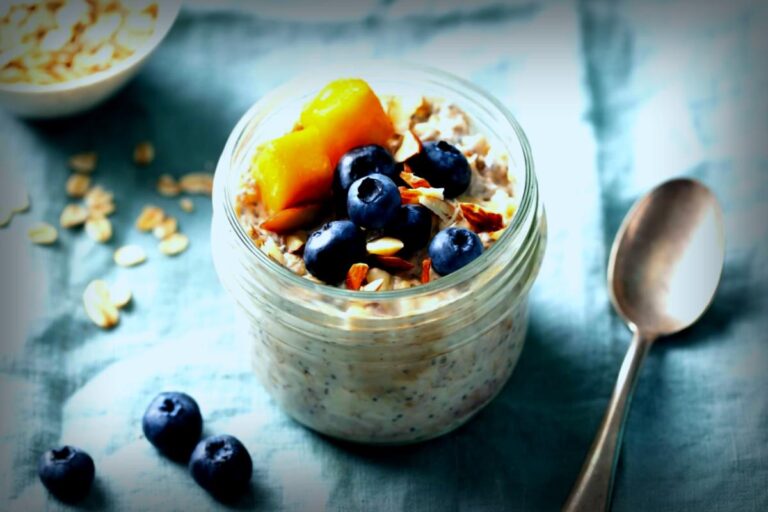The food we choose, how much we move, and our daily habits play a huge role in our heart health. A specialist in cardiovascular nutrition is spotlighting some easy changes to make in your meal choices.
The dietitian firmly believes that our food choices significantly impact our heart’s well-being and has shared 7 foods that she swears by for a healthier heart, plus some hot tips on what to cut out.
Besides diet, simple changes like exercising more, adopting a better lifestyle, and prioritizing sleep can truly uplift your heart health if you’re willing to take those small steps.
Common issues like high cholesterol and high blood pressure are often linked to what we eat and how we live. Even if you have genetic factors at play, tweaking your diet can sometimes make a difference.
As per the Surrey Live, it’s wise to consult a healthcare provider to get the right advice, especially when it comes to family health history regarding cholesterol.
According to stats from the British Heart Foundation, cardiovascular diseases are implicated in around 26% of all deaths in the UK annually. And in the USA, heart disease affects about one-third of the adult populace, highlighted by the American Heart Association.
For anyone looking to stave off heart problems, here’s a peek into some of dietitian Margie Junker’s go-to food choices for heart health, courtesy of UC Davis Health in California.
1. Load Up on Fruits and Veggies
When it comes to fruit, Margie swears by blueberries, dubbing them her ultimate snack, whether fresh or frozen. Berries are known to be beneficial for heart health, and incorporating a wide variety of fruits into your diet can enhance your overall well-being.
As for veggies, she mentioned spinach as her go-to: super easy to use in salads or quickly sautéed with garlic and onions.
“A plate filled with fruits and veggies is tied to a lower risk of heart disease. Whether they’re dried, fresh, frozen, or low sodium canned, they’re all great options,” she adds, though she steers clear of canned fruit packed in heavy syrup, preferring those canned in natural juice instead.
2. Embrace Whole Grains
Margie’s top picks for whole grains include oats and quinoa. She suggests looking for whole grain bread that’s on the less processed side to get all the fiber benefits, which are key for heart health. Fiber helps limit cholesterol absorption in the bloodstream, acting like a sponge in your gut.
3. Go for Healthy Proteins
When it comes to protein, you won’t feel shortchanged with Margie’s recommendations. Walnuts and almonds top her list for heart-healthy omega-3 fatty acids, with a quarter cup serving making for an ideal snack.
Adding more plant-based proteins like lentils, beans, and peas to your diet is another key tip from her, along with heart-friendly fish options, especially salmon and fatty fish like mackerel and sardines.
4. Opt for Low-Fat Dairy
Her choice in dairy? Low-fat or fat-free, with non-fat Greek yogurt being her top pick. It’s not just packed with protein, but also calcium – and you can pair it with oats and berries for a fantastic breakfast!
5. Lean Meats Only
Margie believes in eating lean—especially when it comes to meat. She addresses the risks associated with red meat, particularly processed options like bacon and hot dogs. Instead, she prefers skinless chicken thighs as a tasty alternative.
“Processed meats are off the menu for me. They’re strongly linked to a higher risk of heart disease. I like opting for skinless chicken thighs; they’re flavorful and lean compared to beef that can feel heavy,” she says.
6. Use Healthy Oils
Margie’s ‘go-to’ plant-based oil is avocado oil, but for baking, she favors the flavor of walnut oil. These oils are laden with unsaturated fats that help reduce ‘bad cholesterol’ (LDL) while avoiding fats that turn solid at room temperature, like margarine or shortening.
“I tend to skip using any tropical oils—think coconut and palm—and of course, butter and lard as they don’t promote heart health well,” she adds.
7. Cut Back on Sugars and Salt
She uses maple syrup or local honey for a bit of sweetness in beverages, avoiding chemically laden sweeteners. Margie points out how excess sugar particularly spikes risks for diabetes and heart disease, and advises whittling down on sugar intake.
Salt is another biggie, with Margie recommending to prepare food with little or no added salt. Thinking herbs and zesty citrus like lemon for seasoning is a better way to go. Notably, many processed foods contain hidden salt, so always read those labels!
The NHS suggests a maximum of 6g of salt a day—just about a teaspoon.
8. Watch Alcohol Intake
When it comes to alcohol, Margie’s ruling is to limit its consumption. Sip cozy drinks like water infused with lemon or cucumber for flavor.
She cautions that increased alcohol intake can raise the risk of atrial fibrillation and stroke. However, some research hints that daily light drinking may have cardiovascular benefits, but it really depends on the drink choice.
In conclusion, while occasional red wine might be good for your heart, just remember, moderation is crucial!



















